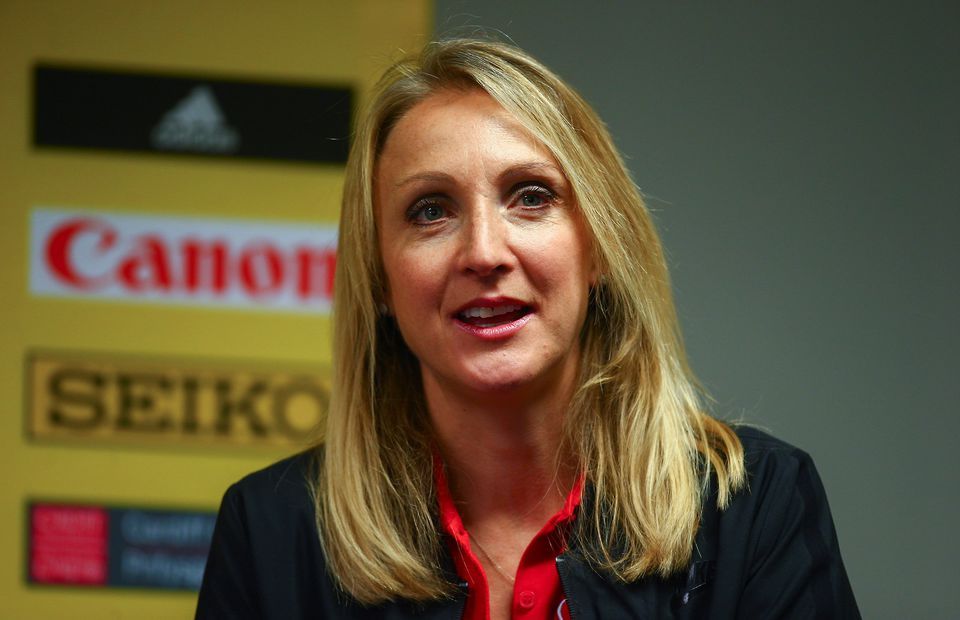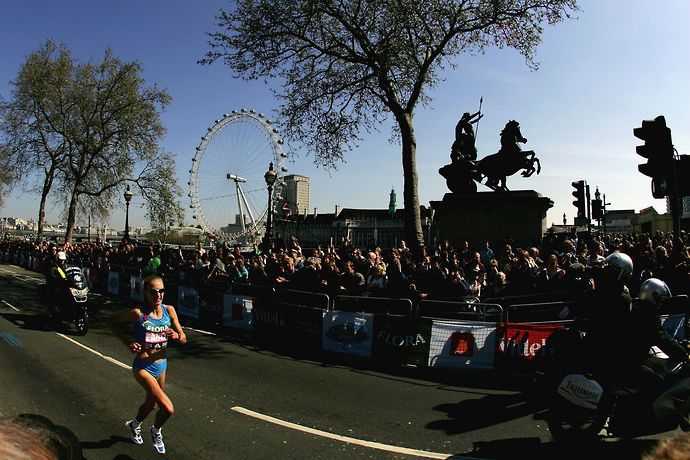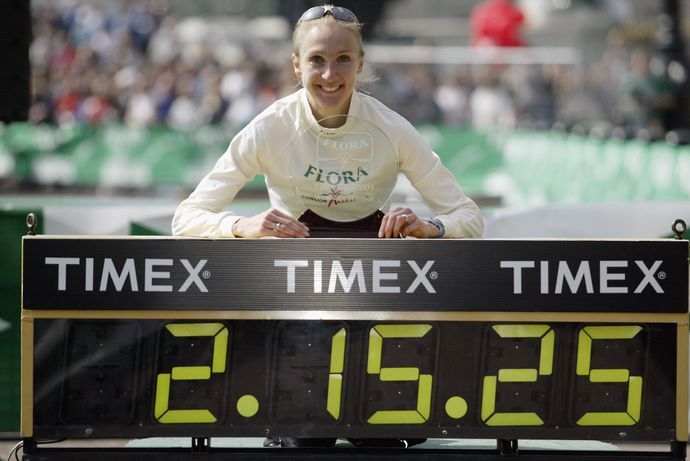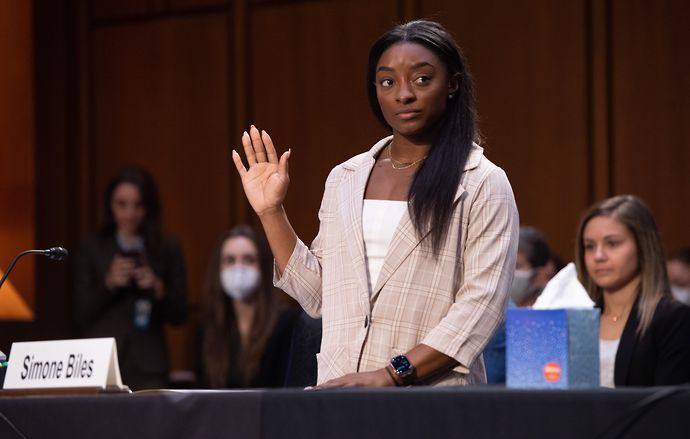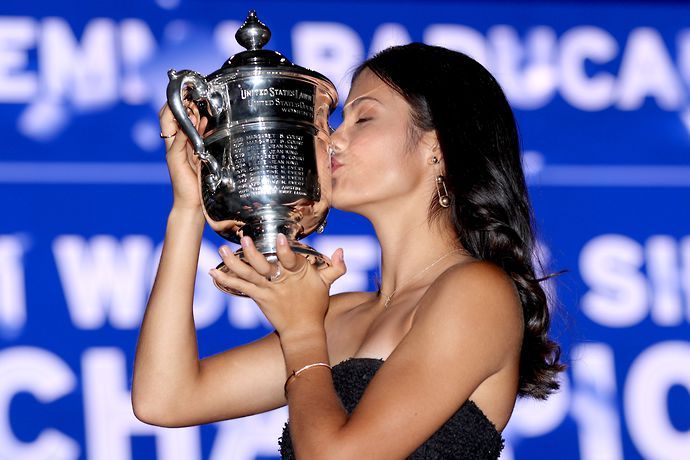In an exclusive interview, GiveMeSport Women caught up with British running icon Paula Radcliffe. A seven-time marathon winner and holder of London’s world record for the past 18 years, Paula opened up on her career, the mental pressures of competition, and the general rise of women’s sport.
It’s early October and we find ourselves in the lavish confines of Monte Carlo, Monaco. The French Riviera is playing host to this year’s SPORTEL event, a global convention centred around the sports media and technology industry.
Much like its surroundings, the event is typically grand, with an array of businesses looking to network and secure broadcasting rights deals. But we wouldn’t feel right coming to the principality without indulging in an element of regalness. Thankfully, we’re in the company of running royalty.
Paula Radcliffe has become the yardstick by which all long-distance runners are measured in the modern era. Such was her level of dominance, her time of 2:15:25 at the London Marathon back in 2003 still stands as the women’s world record for the course today.
Reflecting on this year’s race, Radcliffe was impressed by how the event bounced back following the pandemic. “I think it was great,” she smiles. “There was a lot of build up to it, so we knew it would be a really emotional day.
“London has that uniqueness because it's the one [marathon] I've grown up with. It was the one that first inspired me to want to be a runner. Growing up watching it every year, it can't not get your adrenaline pumping when you start and just hit the music.”
One runner in particular who caught Radcliffe’s eye was fellow Brit, Charlotte Purdue: “She was exceptional. She'd been running really well coming into it, too — she ran 68:49 or something at the Great North Run and also ran a PB before that in the Vitality.
“She's had to deal with global disappointment as well, because already in Rio [2016 Olympics] you could argue she might have been in line for selection. Certainly this time around [in Tokyo]. Not that the others didn't deserve to be there, but she deserved more consideration and to not feel cheated like that.”
There’s clearly a big buzz around elite British runners at the moment, but one of the most inspiring things for Radcliffe has been seeing just how many ordinary people have taken to running since the pandemic hit.
“It's been great to see. I think what we now really need to work on within sport, and within the media as a whole, is ensuring vehicles are still provided for people to get what they want out of the sport.
“That's the beauty of running: you can completely tailor it to what you want. If you never want to step foot near a competition, you don't have to. You can just follow it on TV and then go out for your own run and be inspired by performances that way.
“Or you can aim for a goal like a park run, or you can aim to really get into the lead system, and we have to make sure that all of those pathways are looked after and that there’s good progression for people.
“One of the good stats that we've got — because I've worked on this with Flora — is that, of the people who turned to running during the pandemic, 73 percent said they did it just because it made them feel happier.”
That feeling of happiness is fundamental when it comes to retaining national interest in running, post-pandemic. Mental health cases have surged since COVID-19 took hold, with exercise acting as a saviour for many, but it’s not just sport itself that’s helping people.
A number of professional athletes themselves have recently taken a stand, shining a light on the issue and demonstrating that it’s okay not to be okay.
The actions of Simone Biles and Naomi Osaka in particular have made the media reflect and discuss the issue, and while Radcliffe believes that extra awareness is key, she was keen to stress that mental pressure is still an important part of competition.
“There's much more team management on the mental side of things now. There needs to be more looking out for the athletes, but at the same time, that can't become an excuse either, because mental strength is part of your performance.
“I think it's just something that's changing, and so far changing in a good way. We just need to not go too far and go down the ‘completely woke’ route that we've seen in other areas of sport. Sport, at the end of the day, is about who's toughest. And some of that is mental toughness.”
Commenting on Biles in particular, Radcliffe believes the gymnast’s situation was largely misunderstood by the general public.
“I found it frustrating when people were lumping Simone [Biles] in with mental health, when actually it was almost a physical health thing, because the brain is still a muscle, and her’s wasn't functioning correctly to get her out of moves safely.
“If you have a calf injury and you can't execute something safely, for example, you'd pull out of the event. This was no different, so that's exactly what she did. I just felt it wasn't properly understood. A lot of people are saying she bottled it, but that wasn't the case at all.”
Ending on a positive note, Radcliffe turned her attention to the recent success of women’s sport in Britain, and in particular the phenomenal achievements of teenage tennis sensation, Emma Raducanu.
“I think she’s brilliant. She's just so exciting to watch and really seems to have her head screwed on right. She's not just there for fame, either. She learns fast: when things don't go perfectly, she corrects them quickly, which is really encouraging to see.”
Following Raducanu’s scarcely believable success in the US Open, many are now optimistic she can cement herself as a true sporting icon, taking her rightful place next to Radcliffe and others in the pantheon of British greats.




















